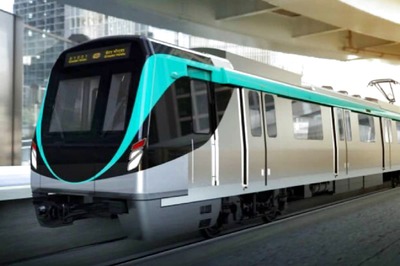
views
Mumbai: Top officials of the Department of Atomic Energy on Tuesday said India’s civil nuclear programme will continue without any compromise on safety parameters, and claimed what happened in Japan’s Fukushima plant in wake of the deadly earthquake was not a “nuclear accident”.
“Safety is the overriding parameter and DAE cannot take any shortcut and Indian plants are safe but after analysing the situation in the nuclear reactors of Fukushima, which have been affected due to an unprecedented Tsunami preceded by high magnitude earthquake, we will revisit the safety aspects of our plants,” top DAE officials said.
“There is no nuclear accident or incident in Japan’s Fukushima plants. It is a well planned emergency preparedness programme which the nuclear operators of the Tokyo Electric Power Company are carrying out to contain the residual heat after the plants had an automatic shutdown following a major earthquake,” said SK Jain, the Chairman and Managing Director of Nuclear Power Corporation.
Once the plant shuts down after an emergency situation automatically, the fission reaction stops and it is only the residual heat that has to be quenched and that is what the Japanese were doing, Chairman of Atomic Energy Commission, Dr Srikumar Banerjee said.
“Because of the unprecedented Tsunami, the external power was unavailable for the emergency diesel generators to take over… during the process the pressure was building up in the reactor which had to be released in a phased manner, that resulted in the exothermic reaction due to hydrogen generation.
“It was purely a chemical reaction and not a nuclear emergency as described by some section of media,” Banerjee said.
“It is a big challenge for our colleagues in Japan to fight an unusual situation due to natural disaster and we salute them as they are managing in spite of the danger,” Banerjee said.
Talking about Indian reactors, Jain said they were “safe” but there was “no complacence on safety.”
Regarding the French EPR reactors which are proposed for Jaitapur plant in Ratnagiri district, Banerjee and Jain said the design of EPR was based on the design experience of 58 reactors running in Europe, and when the Indian EPR will come up it would have seen the experience of five such similar plants in Finland, France, China and UK.
In the case of Japanese nuclear plants it was the station blackout which was the root cause and such a thing will not happen in the existing as well as future Indian reactors, they said.
On the Jaitapur site, Banerjee said it was much above the sea level, and on the western coast, probability of Tsunami “is also very less”.
Jain said India was uniquely placed as it had a centralised emergency operating centre with well drawn procedures scrutinised by regulators.
“Our plants also have multiple level of heat removal system,” he added.


















Comments
0 comment